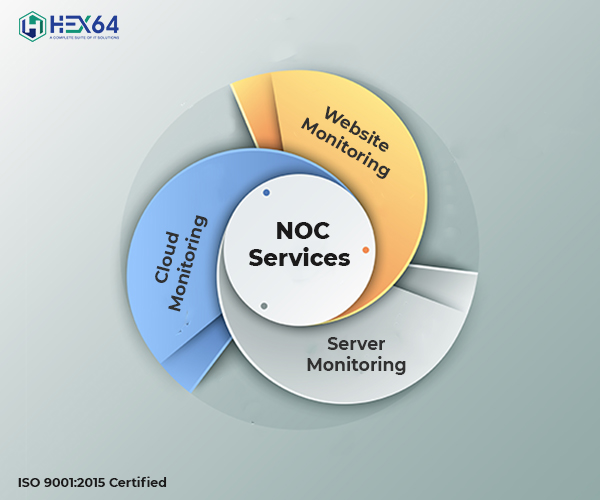The labels and terminology we use are essential in highly technical areas such as IT service management. We need clear, commonly held definitions in order to communicate and collaborate effectively.
Without a specific and agreed-upon description of an important set of IT service tasks, it’s easy to find yourself in the middle of a discussion with a potential service provider, only to recognize that you both have different understandings of the idea. You have been collectively brought to the first position.
It’s certainly inconvenient, but often a little more important than that. People busy taking time out of their day to solve their difficulties don’t come away from thinking particularly productive or self-confident when their time is wasted by an avoidable point of confusion. Relationships and work projects are more useful than being distracted by misunderstandings.
There are many industry terms and considerations that lend themselves to different interpretations, but here, we’ve set your sights on clarifying one in particular: NOC-managed services.
Demystifying the Term “NOC Managed Services
Let us address this term by prime looking at the broader concept of IT Managed Services.
A managed IT service is a great and cost-effective way to handle your business methods. A Managed IT Service Provider provides a reasonable solution for doing business with all the characters of network maintenance that gives you great security and reliability even at an established monthly rate.
As per the current statistics, the managed IT services business is expected to boom and grow to around $193 billion. This shows that a higher percentage of SMBs and startups are in favor of availing these services to take advantage of the high potential of technology and IT management.
Excerpts from this Description Helper reveal the uncertainty surrounding function-specific managed services terms such as “NOC Managed Services”.
Here there may be difficulty with a term such as “NOC managed services”: Gartner’s description of MSP also takes the essence of “outsourced NOC support”, a team often used interchangeably to refer to the same thing as “NOC managed services” can be applied instead- but not always.
- Outsourced NOC support refers to employing a third party NOC provider to develop or become your NOC. Immediately, check out Gartner’s description of the MSP. Since outsourced NOC support is often a “continuous” (24×7) service that includes “regular management, and support”, that technically falls under the description of Gartner’s MSP. Therefore, it is not wrong to refer to “outsourced NOC support” as “NOC managed services”.
- The problem with the term “NOC managed services” is that it invites an explanation that is in line with the conventional wisdom of IT managed services. That is, buying or licensing equipment, putting that equipment into a business and managing it for them. This type of service, as we examine further in the following section, is not the same as outsourced NOC support.
Outsourced NOC Support” vs. “NOC Managed Services”
Let’s take this a level further and break down all these ideas tied into the word to see whether characters use the words interchangeably or to refer to two completely different types of services.
What is Outsourced NOC Support?
Outsourced NOC support refers to a customized outsourced operational service that takes on the cost and complexity of deploying and fully operating NOC operations or increasing the NOC of the customer—such as operating or operating off-hours services and technically running a subset of infrastructure.
NOC The service provider, first of all, specifically makes an assessment to determine how the service needs to be maintained and operated. They then work with the customer to turn the services on. Support is delivered as an ongoing service – much more cost-effective and less stressful than implementing these tasks in-house. In fact, it is sometimes called NOC as a Service (or NOCaaS).
When companies say they want to “erect a NOC” and are considering doing so themselves or outsourcing to a third-party NOC provider, NOC support is outsourced, as we just described, is most likely the right fit. An IT organization in this situation usually has several tasks leading up to the NOC but does not want a traditionally managed service provider to license its equipment and then take steps to manage it.
Preferably, they want a support provider to have their own NOC platform, methods, and people to respond to what an in-house NOC team would otherwise be creating and carry out that support on their side.

Which organizations are best suited for outsourced NOC support?
This type of service is most needed by great companies, communication service providers, OEMs, and the like, who need to monitor and manage multi-vendor and multi-technology stacks – with the highest uptime and availability- with ensuring top operating performance.
Outsourced NOC support can allow these companies significant value efficiencies and scalability compared to setting up an NOC in-house, as well as allowing a longer list of value-adds that can be faithfully completed in-house. But nonetheless a support aspect that is very important.
The top 10 challenges of conducting a successful NOC detail each difficulty solved by the outsourced NOC support team, but the following is a high-level table at a glance. If you find yourself drifting with any of these, consider scheduling a free NOC consultation with our solutions engineering team.
- Exploding over-utilized technology workers and support prices due to the lack of a level-headed organizational build to manage the workflow.
- Blindness to problems and possibilities due to inadequate operational metrics.
- Difficulty recruiting, training, and hiring employees due to heavy turnover and low worker morale, and lack of staffing strategy.
- Variable response to concerns or troubleshooting issues due to inadequate method framework.
- Persistent state of risk due to lack of business continuity plan
- Recurring issues and failure to exit a reactive situation due to lack of experienced operational management.
- Lots of data, but little actionable insights because of the diverse tools and platforms.
- Persistent operational difficulties due to outdated documentation and runbooks.
- Growth stalled due to the inability to extend support for new services.
What is NOC Managed Services?
Again, before we make any distinctions, many people use the term “NOC Managed Services” to explain what we have defined as “outsourced NOC support”. It is sometimes used as another method of saying the same object.
But as we said earlier, others choose the extra traditional understanding of managed service and envision “NOC Managed Service Provider” as a business that supports their license, setup, and hardware and Operates a set of software tools that work under their circumstances. . With regard to the NOC, this would be a potential concern for monitoring and operating your infrastructure support.
In this traditional model, a “real” NOC MSP will trigger the service for certain devices at a specified fixed price/month.
Which organizations are best suited for traditional NOC managed services?
This model can be an excellent fit for IT integrators providers who add white-label support to their goods, but not so great a fit for the largest enterprises and communications service providers that are more in line with outsourced NOC support. Complex and customized solutions are required.
A traditionally managed service provider will know your objects and then create a complete architecture derived from a master plan. This will involve building, purchasing, authorizing, deploying and testing those solutions, and ultimately managing those solutions over and over again. Everything is regulated. As we mentioned earlier, the “best fit” for pure MSP design are IT integrators or line providers who want to add white-label support to their products.
Summary, Final Thoughts, and Next Steps
While some companies are adapting to a standardized managed service model, for most companies, communications service providers, and OEMs, the cost and complexity of creating and maintaining a NOC is a shift from focusing on where it is needed most: the enterprise to innovate and develop.
Outsourcing NOC support to an operationally mature NOC service provider is usually the most desirable opportunity to understand the level of NOC service the company needs to prevent costly project bottlenecks, break out of endless cycles of pressure and mitigate serious vulnerabilities which puts the company at risk.
An outsourced support provider enables you to take control of your infrastructure through a suite of NOC solutions designed to meet the specific needs of your technical environment and operational workflow – all while giving you access to internal resources on those projects, enables the focus that drives the business forward.



